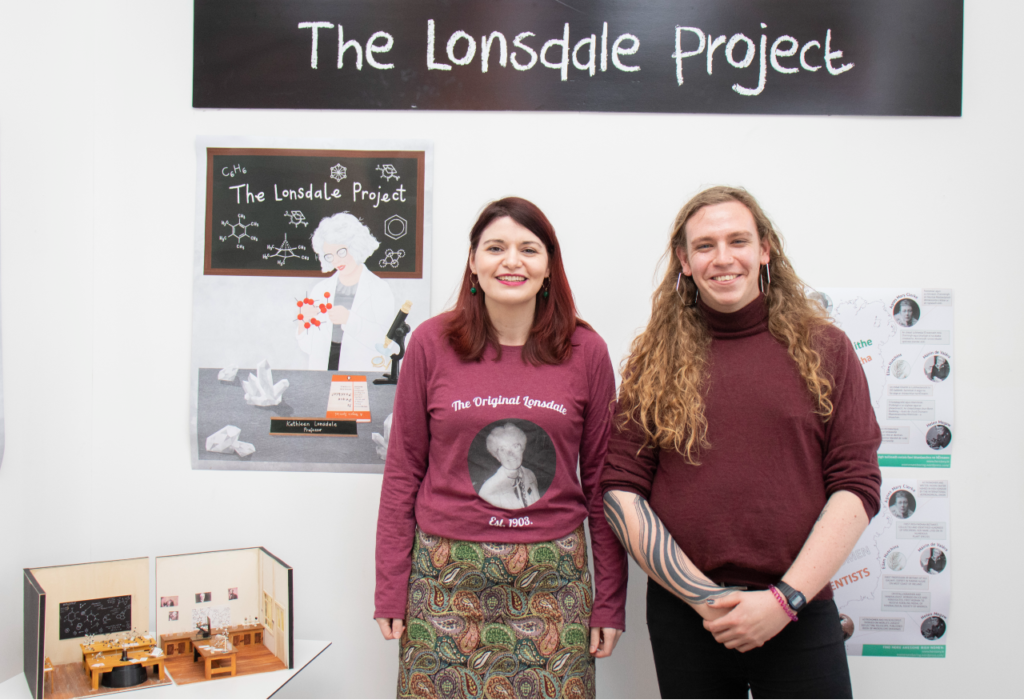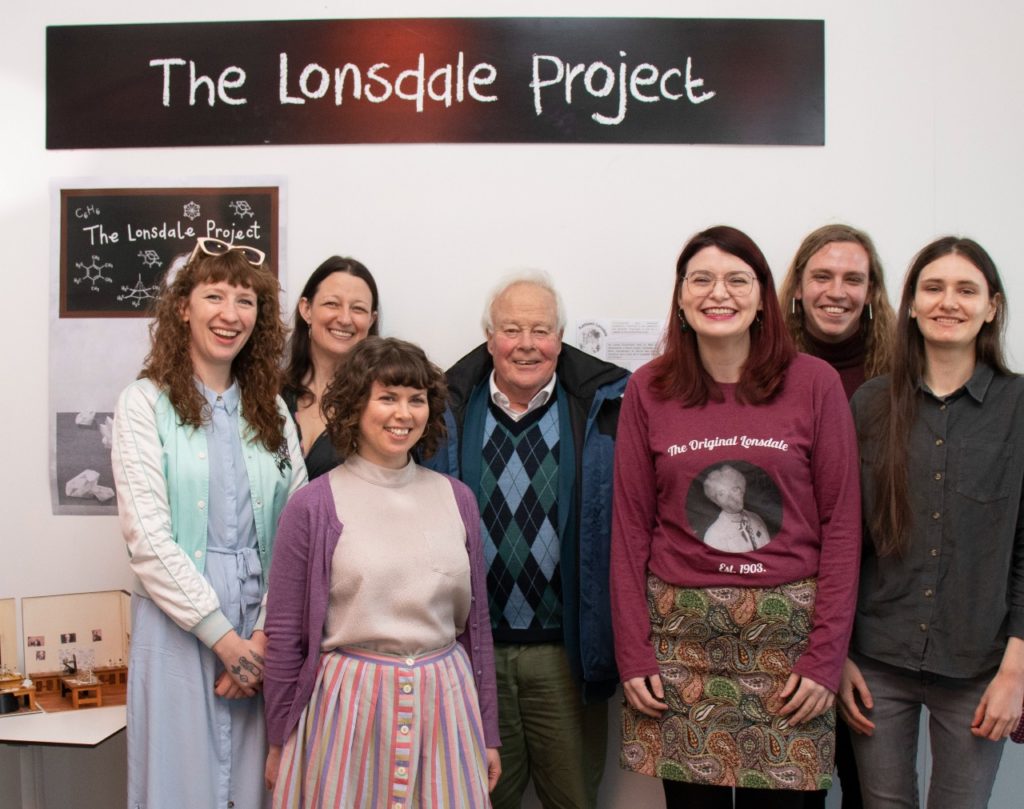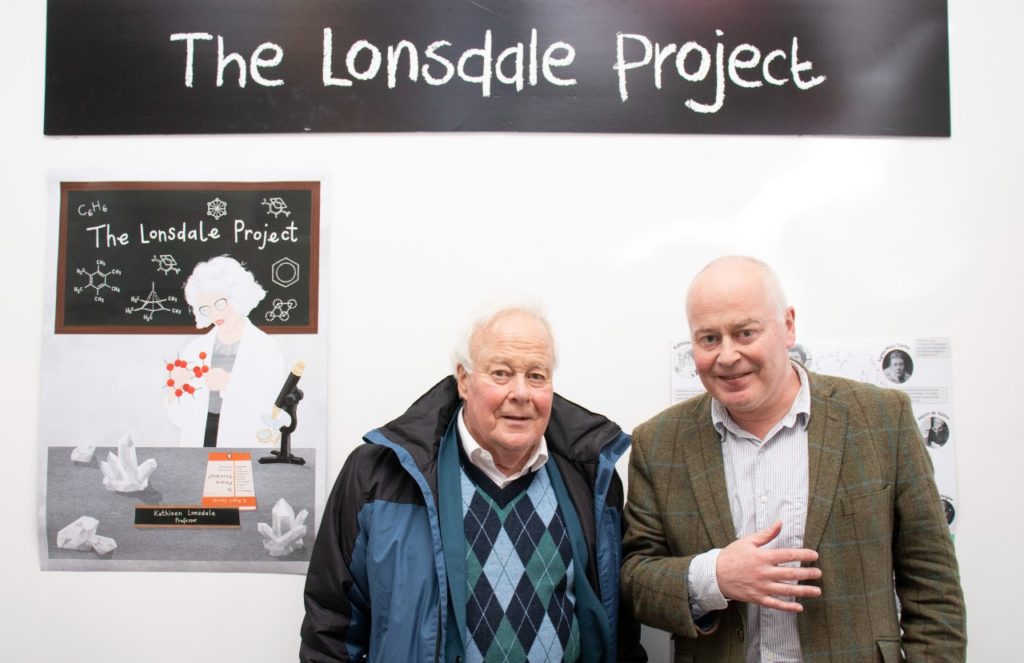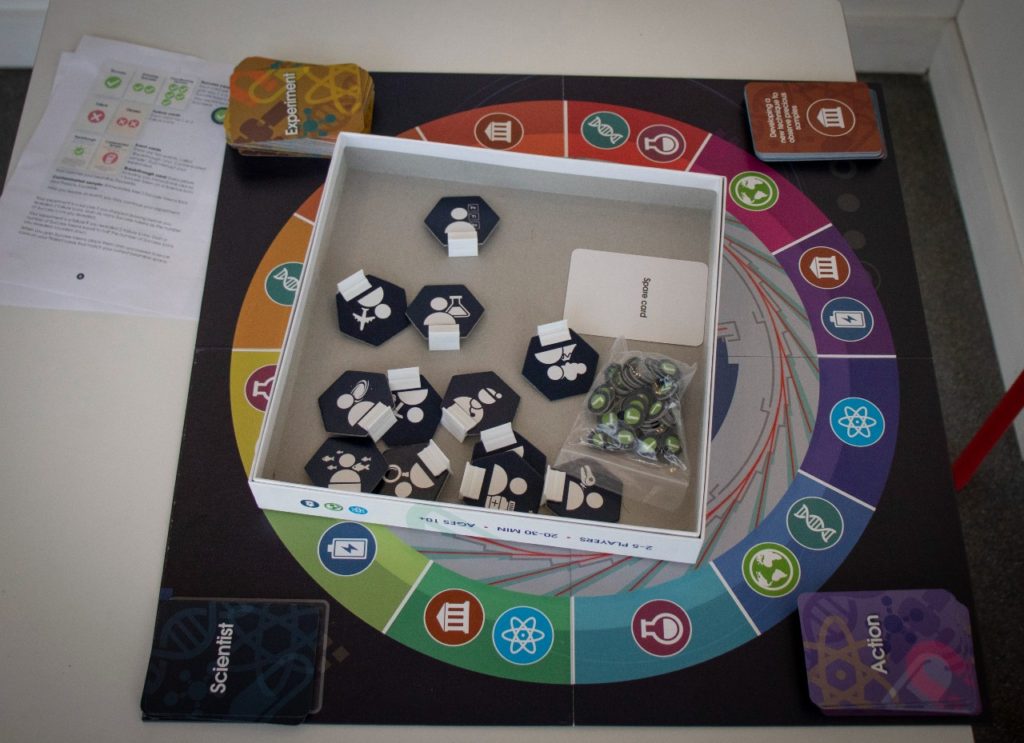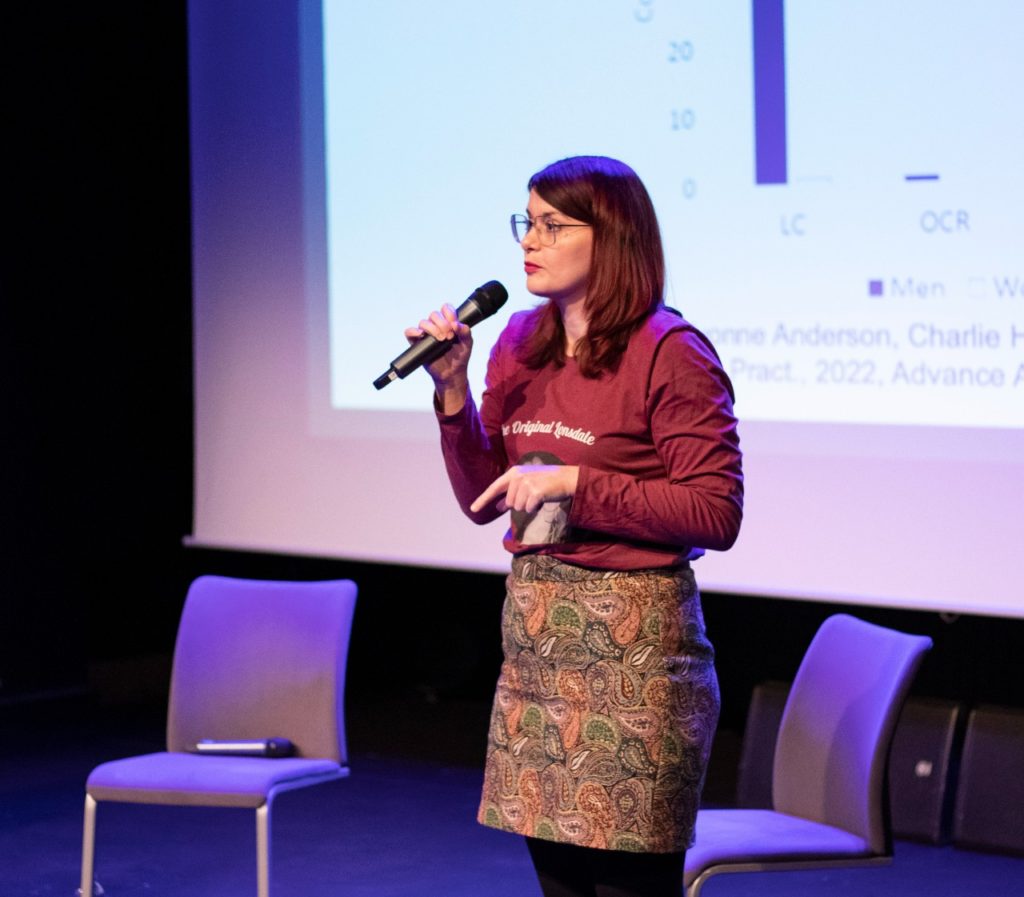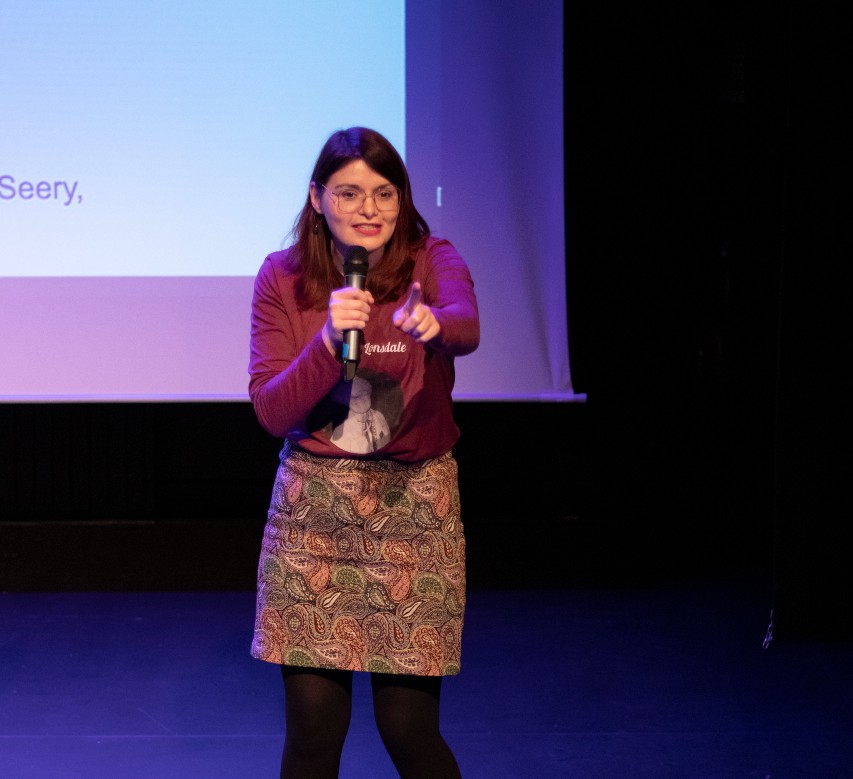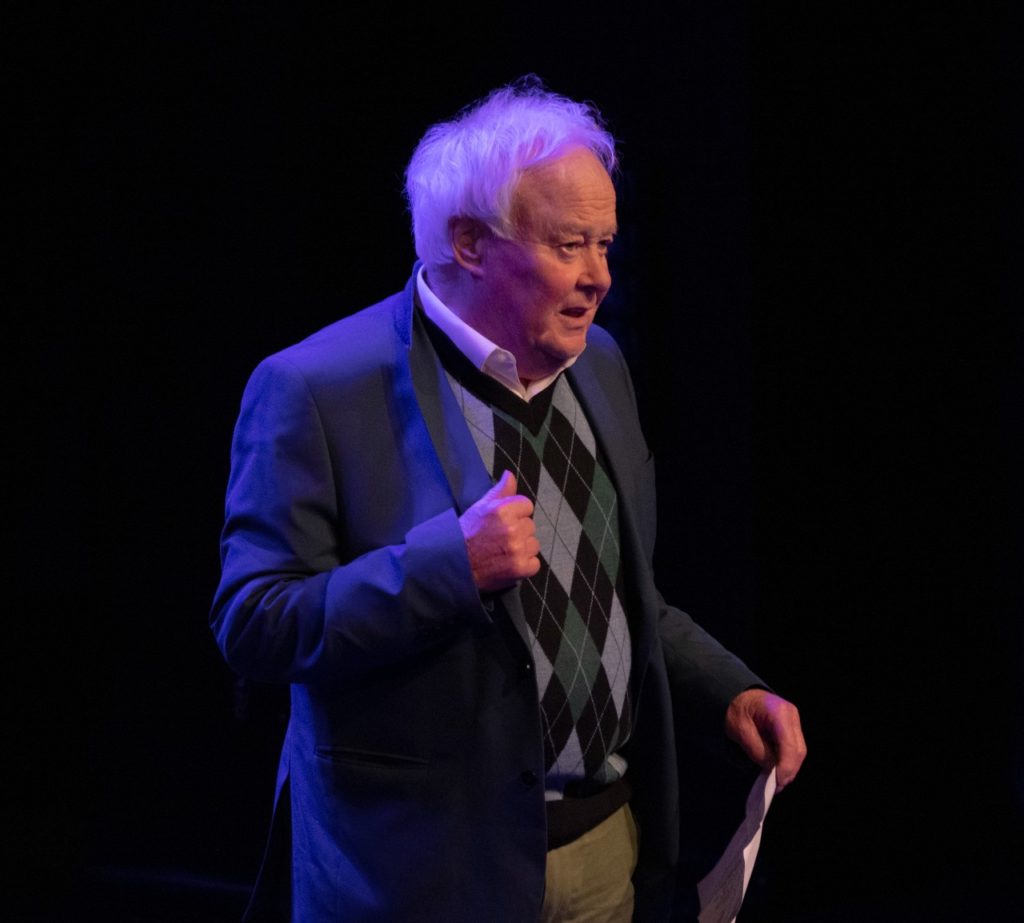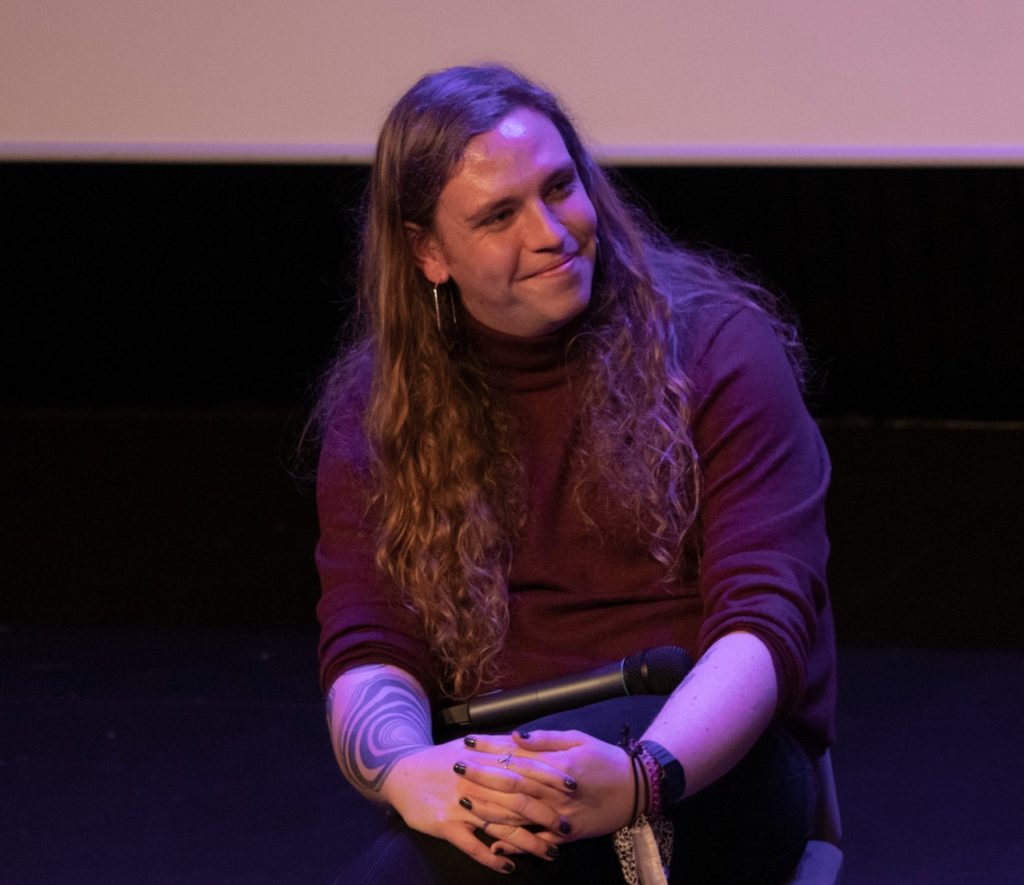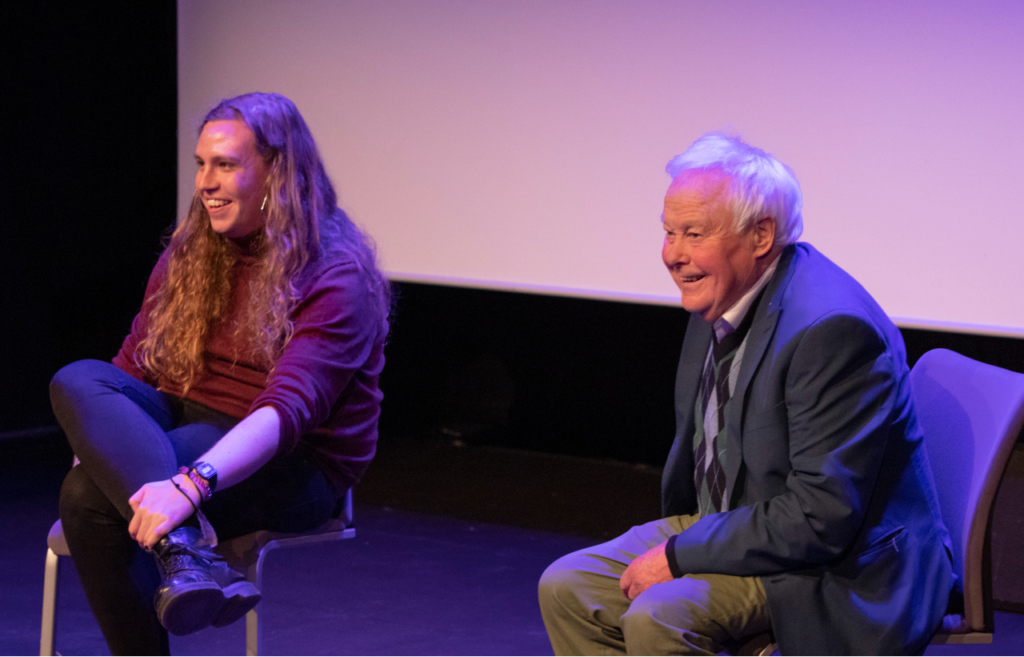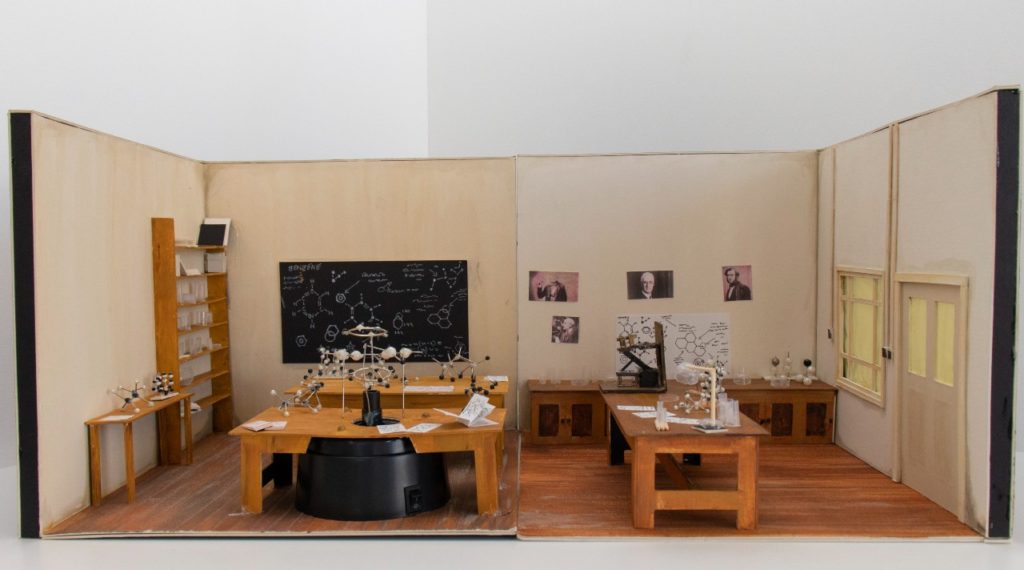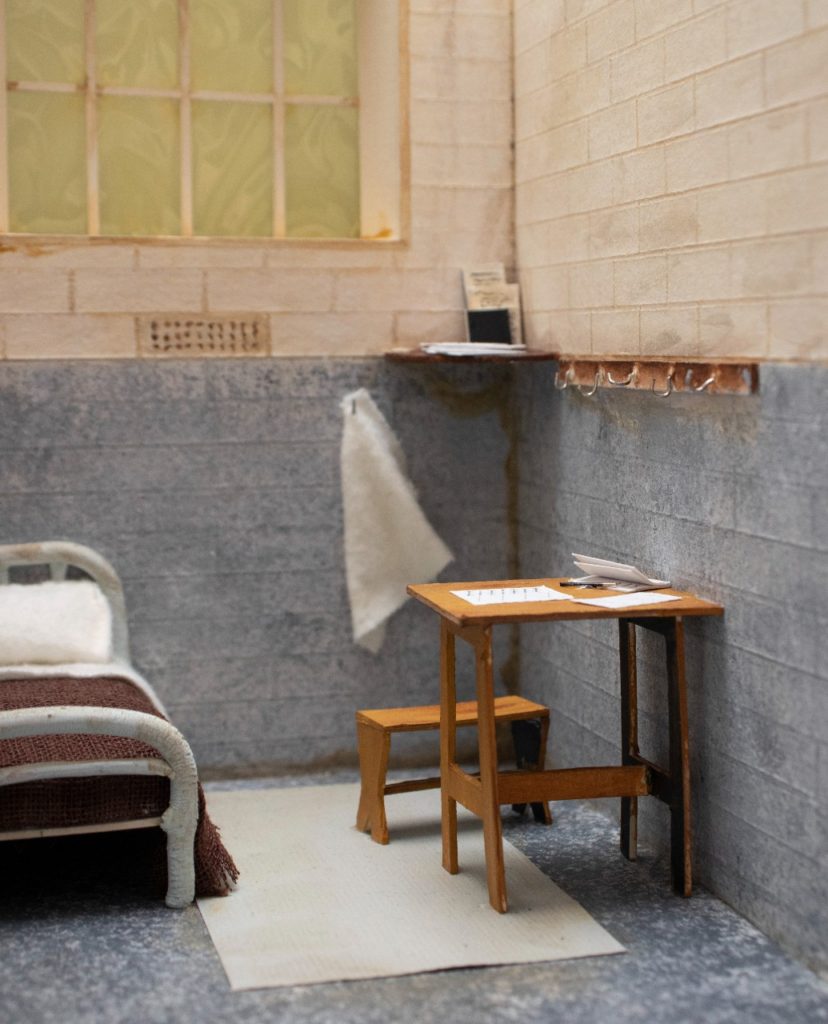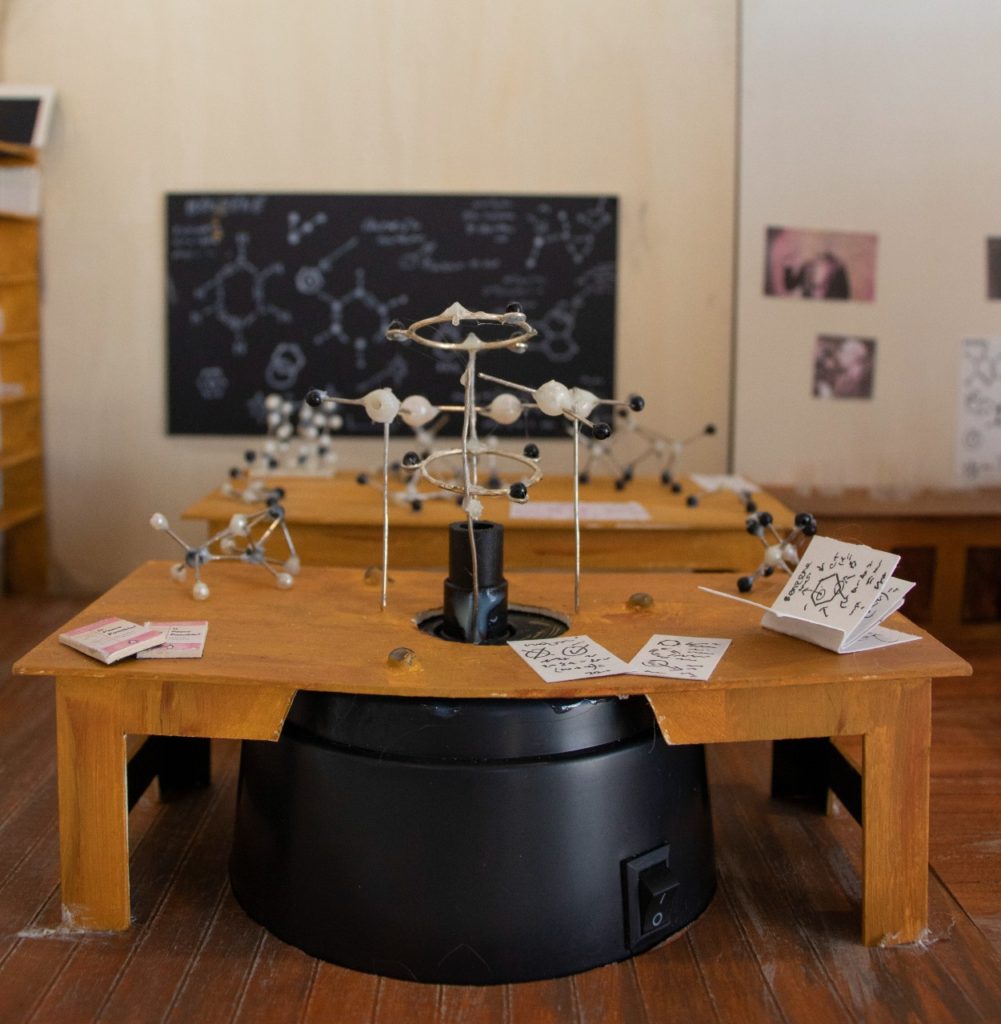Launch of The Lonsdale Project film
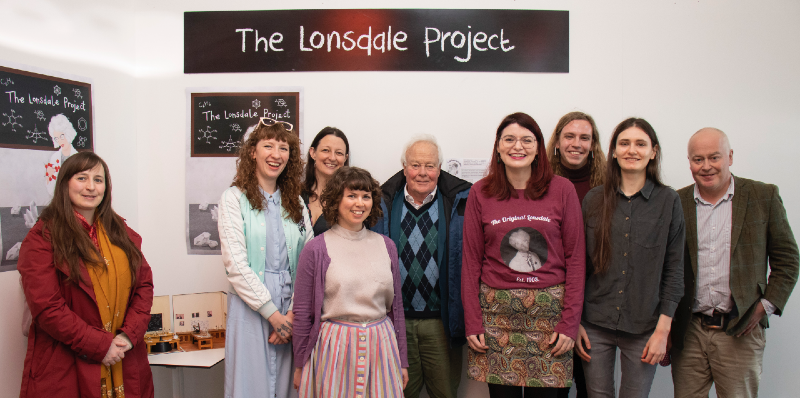
Born in Newbridge, Co. Kildare, Kathleen Lonsdale (1903-1971) was a crystallographer, anti-war campaigner, writer, mother, and former inmate of Holloway Prison. Despite being a pioneering Irish scientist and activist, Kathleen Lonsdale’s name and legacy are curiously unknown by the general public.
In 2020, theatre company Super Paua harnessed an interdisciplinary team of artists, educators and scientists, to create an engaging piece of theatre called The Lonsdale Project about X-ray diffraction, Benzene, pacifism, crystals, and sticking to your guns. On 5th March 2022, The Lonsdale Project, a film by Super Paua, had its premiere screening at Riverbank Arts Centre.
See photos by Ger Holland below (and the great photo of team Super Paua above) which capture the event:
“After over three years in the making – and a journey from theatre to film! – we were delighted to finally share The Lonsdale Project with audiences and collaborators. It was an honour to have Kathleen’s Son, Stephen Lonsdale, and her grandson, David Lonsdale at the launch to celebrate her legacy. It has been a privilege to learn about her work and activism. She’s an inspiration for all of us to explore the complexities and ethics of science, war, and her work allows us to question who is remembered widely by the public, who is not, and why. We hope that the film and the engagement around it will inspire young people to explore these ideas for themselves in their own lives; help acknowledge their collective curiosity and creativity; and allow them to experience science and art in a different way. A huge thank you to the Riverbank Arts Centre Team, the Arts Council, Science foundation Ireland and all the scientists, collaborators and the amazing young people we’ve worked with to create this piece. Bainigí taitneamh as!” Mark Ball
We were honoured to be joined by Stephen Lonsdale (Kathleen’s son) and David Lonsdale (Kathleen’s grandson). Stephen spoke about his mother’s life and work – and commented on her ethical stances – Lonsdale was a committed pacifist who was imprisoned for her beliefs.
“My mother accepted many invitations to talk to young people. Firstly to encourage both sexes to become scientists but only work for the good of humanity, and secondly, to say that we all should oppose all war by refusing to fight. She was a great admirer of Gandhi and his policy of passive resistance.” Stephen Lonsdale
Three quotes by Kathleen Lonsdale:
“If we knew all the answers there would be no point in carrying out scientific research. Because we do not, it is stimulating, exciting, challenging.”
“A crystal is like a class of children arranged for drill, but standing at ease, so that while the class as a whole has regularity both in time and space, each individual child is a little fidgety!”
“Never refuse an opportunity to speak in schools”
Over the past three years, Riverbank Arts Centre is proud to have partnered with Super Paua on this artistic journey, which brings the life and work of world renowned physicist Dr Kathleen Lonsdale (1903-1971) to the forefront of young Irish minds. We have co-hosted workshops with Super Paua for more than 1000 Kildare primary and secondary school pupils, exploring Arts and Science with the company’s characteristic curiosity, creativity and humour. We are very grateful to all the funders who made this work possible.
The Lonsdale Project is supported by Science Foundation Ireland, Arts Council of Ireland, Baboró International Arts Festival for Children, The Royal Institution, SciFest, and TU Dublin.
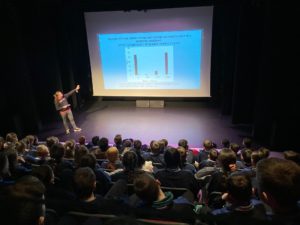
The Lonsdale Project for schools:
100 pupils from Scoil Mhuire joined us for a special screening of The Lonsdale Project on Monday, 7 March – followed by a Q&A with Mark. If you are interested in a screening (whiteboard version will be available soon!) or workshop for your school, please get in touch boxoffice@riverbank.ie
Some more details about the remarkable Professor Kathleen Lonsdale:
- In 1924, she joined the crystallography research team headed by William Henry Bragg at the Royal Institution, London. She was a pioneer in the use of X-rays to study crystals.
- In 1929, Lonsdale published her paper on the structure of the Benzene ring. She discovered that the benzene molecule at its core was planar (that all of the six carbon atoms in its ring lie flat in a single plane together), and her paper detailing her methods and measurements remains a classic in scientific writing.
- In 1957, Lonsdale published a book: Is Peace Possible? which explores the importance of world peace. Kathleen Lonsdale was a Quaker which is a Christian faith that has Pacifism as one of its values. She refused to do war duties because of her beliefs and was charged a £2 pound fine. When she refused to pay the fine she was sent to Holloway Prison for a month. While there, she noticed and was appalled by the conditions of the prison. Upon her release, she became a prison reformist, investigating and commenting upon jail systems worldwide.
- In 1966, lonsdaleite, a rare form of meteoric diamond, was named after her. Commenting on this honour he said, “certainly the name seems appropriate since the mineral only occurs in very small quantities (perhaps rare would be too flattering) and it is generally rather mixed up!”

The Newbridge connection:
Kathleen Lonsdale was born in 1903 and lived the first five years of her life in Charlotte House, Newbridge, Co. Kildare. This house was the Post Office in the town and Kathleen’s father, Harry Yardley, was the postmaster.
 Image credit: Kildare Libraries local history
Image credit: Kildare Libraries local history
